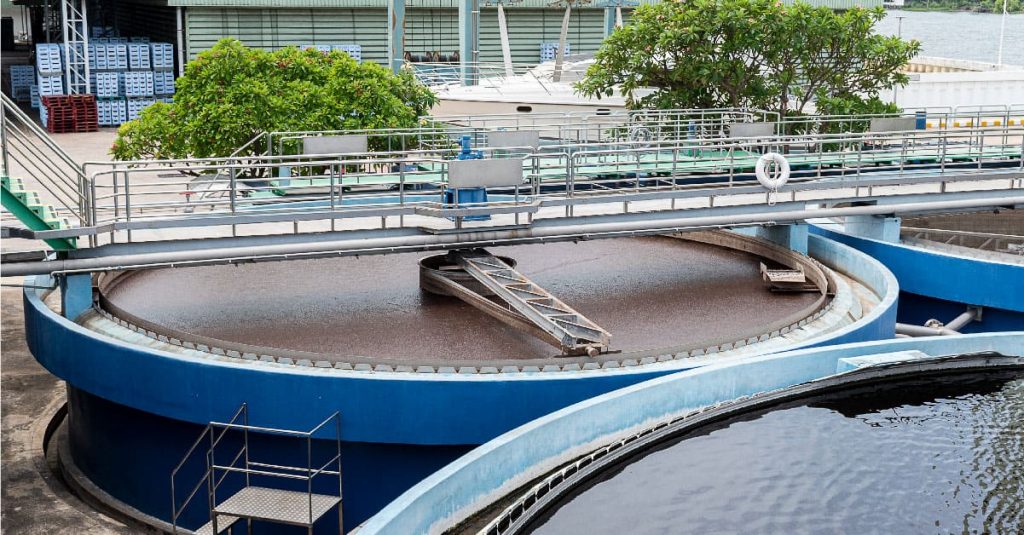Water scarcity is a pressing issue in many parts of the world, and Oman is no exception. With limited freshwater resources and a growing population, the country has made significant advancements in wastewater treatment to ensure sustainable water management. Understanding the waste water treatment process is crucial for appreciating the efforts that go into reclaiming and reusing water resources.
This blog delves into the key steps of the waste water treatment process in Oman, highlighting its significance and the technologies that make it possible.
What Is the Wastewater Treatment Process?
The waste water treatment process involves removing contaminants, impurities, and pollutants from water generated by households, industries, and other sources. The goal is to make the water safe for reuse or discharge into the environment without causing harm. Oman’s wastewater treatment efforts are part of a broader strategy to address water shortages and protect the environment.
Key Steps in the Wastewater Treatment Process
- Preliminary Treatment
The first stage of the wastewater treatment plant process is the removal of large debris, such as plastics, rags, and other solid waste. Bar screens and grit chambers are commonly used to filter out these materials, preventing damage to downstream equipment.
- Primary Treatment
In this stage, wastewater is directed into settling tanks where heavier particles, such as sand and organic matter, sink to the bottom as sludge. The lighter materials, like oil and grease, rise to the surface and are skimmed off. This step is vital for reducing the overall load on secondary treatment processes.
- Secondary Treatment
This phase focuses on removing dissolved organic matter and nutrients. Biological treatment methods, such as activated sludge systems or trickling filters, are commonly used. In these systems, microorganisms break down organic pollutants into harmless byproducts, ensuring cleaner water.
- Tertiary Treatment
The tertiary stage is an advanced step in the wastewater treatment plant process. It involves techniques like filtration, disinfection, and chemical treatment to remove any remaining impurities. This stage ensures the treated water meets high-quality standards for reuse in agriculture, landscaping, or industrial processes.
- Sludge Treatment
The process of wastewater treatment also includes managing the sludge generated during earlier stages. Sludge is treated through methods such as anaerobic digestion, dewatering, or incineration to reduce its volume and make it safe for disposal or reuse.
- Final Disposal or Reuse
After treatment, the clean water is either released into natural water bodies or reused for various applications. In Oman, treated wastewater is increasingly being utilized for irrigation and industrial purposes, contributing to water conservation efforts.
Importance of the Wastewater Treatment Process in Oman
- Addressing Water Scarcity
Oman is a water-scarce country that relies heavily on desalination and wastewater treatment. By treating and reusing wastewater, the nation reduces its dependence on freshwater sources.
- Environmental Protection
The process of wastewater treatment ensures that harmful pollutants do not contaminate natural water bodies, safeguarding marine and terrestrial ecosystems.
- Public Health Benefits
Treated wastewater reduces the risk of waterborne diseases by eliminating pathogens and harmful chemicals. This is particularly important for agricultural uses, where untreated water can pose significant health risks.
- Economic Advantages
Investments in wastewater treatment plant processes contribute to long-term economic benefits by supporting agriculture, reducing environmental damage, and enhancing industrial productivity.
Innovations in Oman’s Wastewater Treatment Plants
Oman has implemented advanced technologies in its wastewater treatment plants to enhance efficiency and sustainability. Some of these include:
- Membrane Bioreactor (MBR) Technology
MBR systems combine biological treatment with membrane filtration, producing high-quality treated water suitable for reuse.
- Solar Sludge Drying
This eco-friendly method uses solar energy to reduce the volume of sludge, minimizing the environmental impact.
- Effluent Polishing Units
These units ensure that treated water meets stringent standards for discharge or reuse by removing any residual impurities.
Optimizing Wastewater Treatment in Oman with Ion Exchange Solutions
Ion Exchange, a leader in water and wastewater treatment solutions, plays a pivotal role in enhancing the waste water treatment process in Oman. By offering state-of-the-art technology and customized solutions, Ion Exchange helps industries, municipalities, and communities implement efficient wastewater treatment plant processes that meet regulatory standards and promote sustainability.
Our state-of-the-art wastewater treatment plants offer pioneering solutions that focus on wastewater recycling and source reduction, alongside waste management through product recovery and waste minimization. Utilizing innovative, energy-efficient, and cost-effective technologies such as membranes, advanced oxidation, and evaporation, these integrated systems help conserve water by recycling wastewater and recovering valuable by-products for reuse. This approach not only supports zero liquid discharge objectives but also delivers a strong return on investment for our customers while protecting the environment. After conducting bench-scale and pilot plant studies and detailed site surveys, we select the most appropriate technologies for industries such as power, fertilizer, electronics, textiles, chemicals, food & beverage, pulp & paper, pharmaceuticals, and automotive sectors. Our product line includes:
Conclusion
The waste water treatment process is a cornerstone of sustainable water management in Oman. By reclaiming and reusing water, the country is addressing its water scarcity challenges while protecting the environment and supporting economic growth. From preliminary treatment to advanced tertiary processes, every stage of the wastewater treatment plant process contributes to ensuring a cleaner, greener future.
Connect with Ion Exchange experts today to learn more about innovative wastewater treatment solutions.


